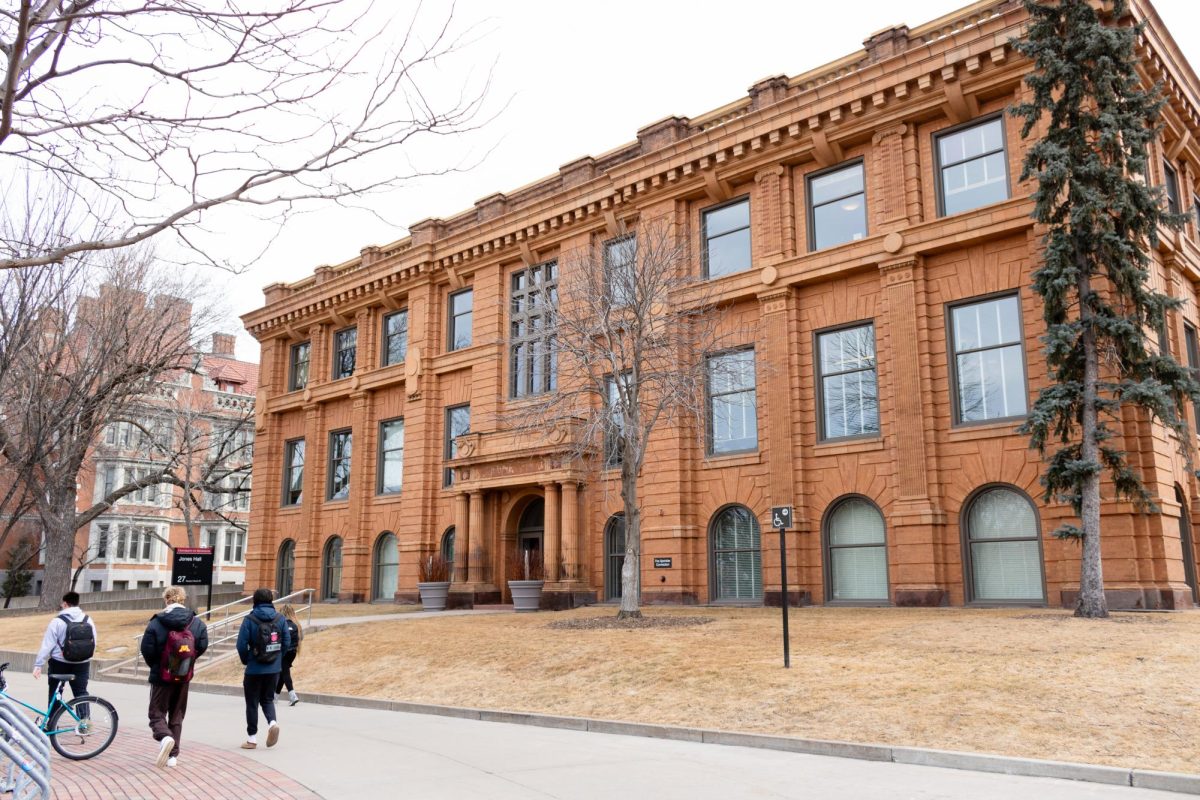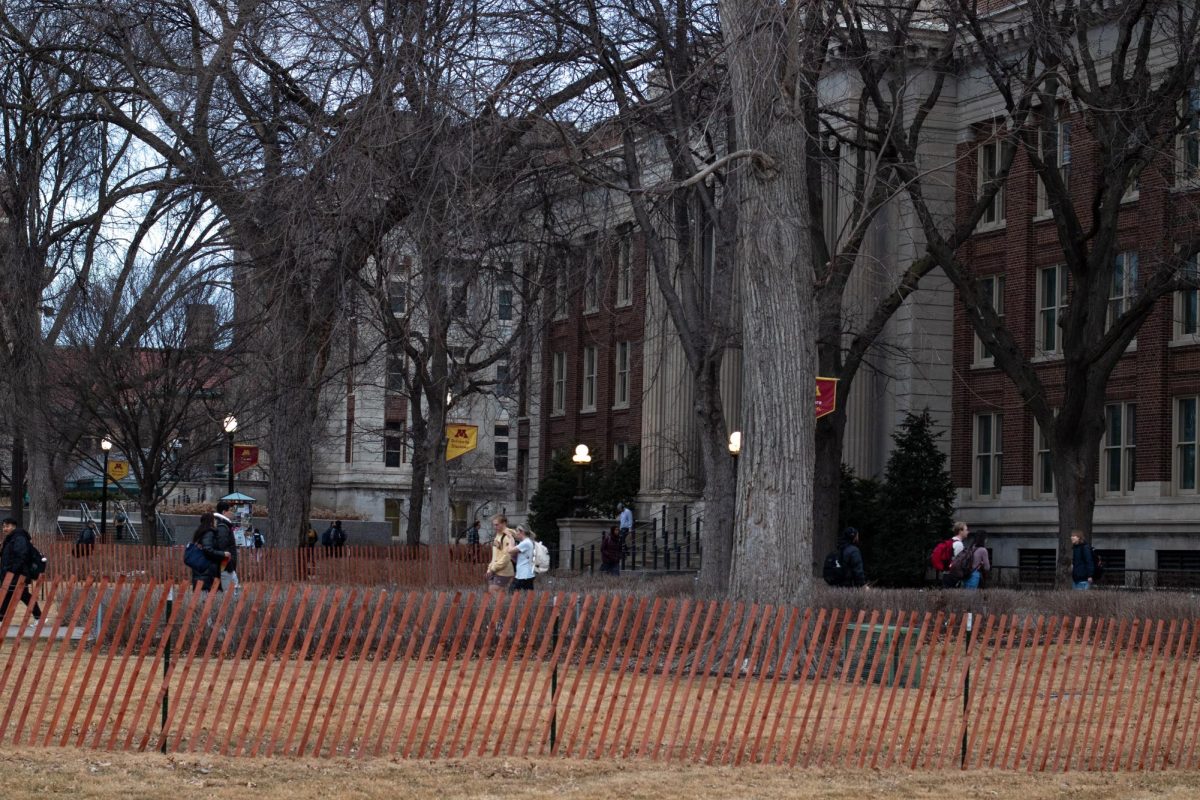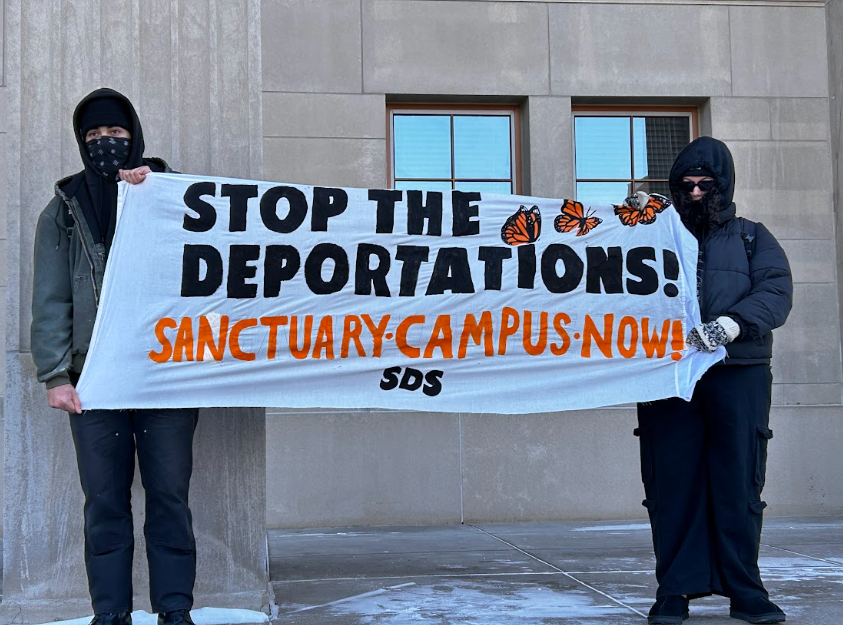President Donald Trump signed 37 executive orders in his first week, 26 of which he signed on his first day, according to NPR. Many on campus worry that some of those orders may change the rights of students and immigrants across America.
Some orders have caused controversy, including ones regarding Americans’ rights. Chief among those is a group of executive orders that may challenge the way we view the First and Fourteenth Amendments.
The First Amendment
Many worry that the introduction of certain orders and laws could limit First Amendment freedoms or change the way those freedoms are viewed by our court system.
Already, the Center for Disease Control (CDC) has seen changes as several pages of their website relating to sexual health awareness, LGBTQIA+ identity and vaccinations were recently archived. These pages, according to the New York Times, were likely taken down as a response to an executive order issued by Trump, which forbids government material that promotes gender ideology.
A few CDC pages were brought back following backlash, but some experts still believe actions like this could change the way the public can find information.
Jane Kirtley, the former Executive Director of The Reporters Committee for Freedom of the Press and current professor of media law at the University of Minnesota, said the decision to take some of these pages down is extremely worrying for both the public and media professionals.
“The idea that this kind of information that has been freely available to the public no longer will be is concerning to me, for the public as a whole, but certainly for journalists as well,” Kirtley said. “It makes their ability to report much more difficult.”
Kirtley said the takedown of these CDC pages in particular is especially worrying as the information belongs to the public.
“I get very concerned when the government is basically directing these agencies to stop making information available to the public,” Kirtley said. “That information belongs to the public, it does not belong to those agencies.”
Another chief concern for Kirtley is the outspoken opposition to the news media. Potential leaders, such as Kash Patel, who Trump chose as the potential FBI director, have threatened journalists for their reporting during the 2020 presidential election.
“We’re going to come after the people in the media who lied about American citizens, who helped Joe Biden rig presidential elections,” Patel said in a 2023 podcast with Steve Bannon.
Because of hostile comments like these from Patel and others, Kirtley said she is worried about what news reporting may look like once Trump’s administration is formed.
“Kash Patel, who you know is under consideration to be the head of the FBI, has expressed a lot of hostility to the news media, both prior to and during the confirmation process,” Kirtley said. “I think it’s fair to assume that, if he does become the head of the FBI, we’re going to see substantial change in the way the federal government interacts with journalists.”
Kirtley said certain rulings surrounding what journalists must disclose, including confidential sources and classified information, were enforced sparingly during Biden’s time in office. With Trump in charge, though, she is worried that these rulings could jeopardize the relationship and trust that journalists have with sources.
“Under the Biden Administration, the view of the Department of Justice had been that journalists should essentially be the last resource that law enforcement should turn to to get information about investigations,” Kirtley said.
With all of this, Kirtley also added that other executive orders removing Biden-era fact-checking may cause the rapid spread of misinformation. Although she said she does not support government censorship of speech, she said these fact-checks were essential in preventing the growth of misinformation online and protecting Americans from harmful posts.
Fourteenth Amendment
This Civil War-era amendment that guaranteed due process was originally meant to give rights to freed slaves after the Union’s victory over the Confederate States.
Now, this amendment is often used to establish citizenship for the children of immigrants. However, with a new executive order, birthright citizenship could come to an end.
Ilan Wurman, a professor of constitutional law at the University, said that even though the administration is signing orders at a fast pace, that does not necessarily mean they are unconstitutional.
“The administration is moving at a very fast clip, and they are doing a lot of things by executive order,” Wurman said. “Most of which is probably going to end up being perfectly constitutional. Others will raise constitutional questions, which are currently unsettled, and still, others are trying to unsettle some existing Supreme Court precedent.”
Although federal judges have moved to block Trump’s order, Wurman, who specializes in Fourteenth Amendment law, said that because of the wording of the amendment, the fate of Trump’s order will likely end up in the hands of the Supreme Court.
According to Wurman, the general belief of the Fourteenth Amendment has been that citizens born on U.S. soil are automatically granted citizenship. However, the Supreme Court has never officially come to a decision.
“The Supreme Court has never actually addressed the question, whether that birthright citizenship also applies to temporary visitors, or to the children of people who illegally entered the country. They’ve never ruled on that,” Wurman said. “A lot of people think the birthright citizenship order is clearly unconstitutional, and well, maybe, but the Supreme Court’s never ruled on these two issues.”
This order is one of many that Trump has signed which are being contested in courts. Wurman said this is not by accident, as Trump’s administration is trying to set an official legal precedent to decide birthright citizenship once and for all.
“They have the executive order with respect to birthright citizenship, which is clearly an attempt to get the Supreme Court to weigh in on the meaning of the citizenship clause of the Fourteenth Amendment,” Wurman said.
On campus, student groups have already begun planning protests of these Trump-ordered decisions. After the University announced Thursday that they will comply with ICE orders, many students felt outraged with the University’s decision to allow ICE into what former President Biden ruled a sensitive area.
“Immigration laws are complex, and the ways in which the federal government enforces them varies. Given that, how the University responds would depend on the specifics of each situation,” University spokesperson Jake Ricker said in an emailed statement. “While the University does not have responsibility or an active role in federal officials enforcing federal law or court processes, as a public university and employer, we cannot ignore federal court orders or subpoenas.”
Even still, University officials said they will continue to support immigrant students through changes to immigration policy.
“International students and scholars have been and will always be an essential part of the University of Minnesota, bringing new knowledge and experiences to our University for 150 years,” Gregg Goldman, executive vice president for Finance and Operations at the University, said in a systemwide emailed statement Friday. “They — and other employees and students who are affected by immigration policies — will be a vital part of the success of our state and the University of Minnesota long into the future.”
How These Changes Affect The Greater System
Wurman said the Trump administration’s goal is to change the way certain laws in America are ruled and establish new precedents as much as he can while he is in office.
“Is it true that the current administration is pushing for executive orders that are trying to destabilize existing Supreme Court precedents? Yes, they are doing that,” Wurman said. “But there has been a long legal movement supporting them in that attempt.”
Wurman said these changes are a double-edged sword, as the goal of an election system is to see change when a new leader is elected. But this much change could cause issues for the legal system.
“Every four years, you get a whole new set of policies. Even though the underlying laws have not changed, that is instability,” Wurman said. “But it’s instability that some people might favor because elections have consequences.”













